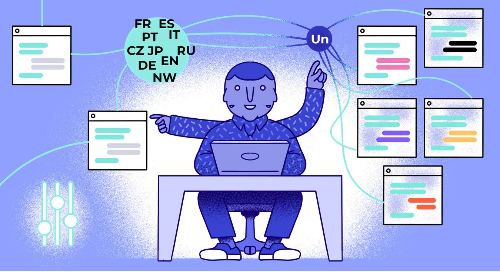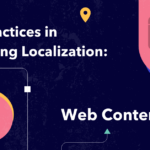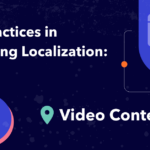At the beginning of each year, I like to think back on what we’ve accomplished this year from a customer and product perspective, and where Unbabel is going in the future. While 2020 was an anomaly for pretty much any company and struggles were faced, we were fortunate that Unbabel helped our customers achieve their multilingual customer service operations goals – even with remote or distributed teams. If 2020 taught us one thing, it’s that our vision and our market opportunity for Language Operations is clearer than ever.
First, let’s talk more about that vision.
From translation to language operations
While Unbabel started with an API and a vision to be the world’s translation layer, something subtle – yet important – shifted in our business strategy in 2020. Unbabel is about so much more than translation alone. Today, most organizations still rely on a siloed approach to language. In other words, the marketing team might use translation services, while the sales team hires native speakers, and the customer service department staffs up with native-speaking BPOs. There’s no single language strategy that spans the entire organization. That leads to massive inefficiencies that can be solved with technology.
Much like we’ve seen the rise of operations-for-everything powered by technology (think revenue ops, DevOps, marketing ops), Unbabel imagines a new category of Language Operations, in which AI-powered, human-refined machine translation technology serves as the centerpiece to power an entire organization’s language strategy. In this model, anyone will be able to communicate effectively with their stakeholders in their native language – while keeping important considerations like quality and cultural nuances in mind. 2020 has shown companies that they need to think of the entire world as their market, regardless of the location from which they’re operating. Unbabel will be the engine that powers their always-on, global expansion.
So, let’s look at how this vision materialized in 2020.
Customer success in an unpredictable year
No one could have predicted 2020’s events, but Unbabel was in a strong position to help our customers’ teams transition to remote, multilingual customer service operations. Many of our customers were in industries with surging customer service demand, yet were contending with the need to do more with less. There are many inspiring examples of customers who rose to the challenge. Here are just a few.
For Logitech, a rapid transition to remote work led to a 300% surge in tickets related to its home office products. Their customer service team quickly shifted strategy from using generalist, native-speaking agents to specialist, English-speaking agents to meet this global surge in customer demand. Unbabel was the engine that powered their translation across 24 different languages, helping them close tickets within 48 hours instead of 13-15 days.
For independent music publisher TuneCore, 2020 was a transformative year. Artists lost a major revenue stream from touring and turned to digital music platforms as their primary source of income. As a result, demand for TuneCore’s services surged and more global artists turned to the company in difficult times. Using Unbabel, TuneCore was able to serve customers across 29 languages and improve response times from three weeks to same-day.
In 2020 alone, Unbabel translated 150 million words per month, or roughly two billion words per year. While we continue to expand into new markets and verticals, our customers within the technology and gaming space saw the most expansion and volume this year, with customers including Microsoft, Wargaming, Soundcloud and more.
Continued product and research innovation
I’m particularly proud of our team’s ability to innovate on the product and research side in 2020. We all came together from our various remote locations to accomplish some amazing things. For example, this year we saw the release of:
- Unbabel Portal, a self-service interface on top of the Unbabel platform, that empowers teams to measure and maximize their translation capabilities. It’s a key part of our vision to support the development of Language Operations in multilingual customer service.
- COMET, or Crosslingual Optimized Metric for Evaluation of Translation, which offers a fresh approach to measuring and improving machine translation quality over time.
- MAIA, a Multilingual AI Agent Assistants large scale research project, which will augment customer service agents with AI, making it more efficient for enterprises to deliver chat in 30 languages and improve customer satisfaction through human empathy.
These groundbreaking developments in Language Operations and machine translation will push the industry forward and create new opportunities for multilingual expansion across every department in the organization.
A year of key milestones
We’re also grateful for new milestones achieved in 2020. First, we hired CMO Sophie Vu, who has brought a unique perspective to our team on how technology can remove language bias and power global business operations. We’re grateful for her fresh approach to leadership and the powerhouse team she’s building.
We’re also proud of our team’s recognition through industry awards including Fast Company World’s Most Innovative Companies, Stevie’s Best Use of Technology in Customer Service with our partner Concentrix, and European Contact Centre and Customer Service Awards Finalist status (ECCCSA) with our customer Microsoft.
As we start 2021, we’re excited for global milestones on the horizon, like the arrival of a COVID-19 vaccine and the potential ability to reunite in person at some point this year. While last year has shown us that remote work can be both possible and productive, we all want to talk face to face again. I’m looking forward to this happening soon. For Unbabel, 2020 has driven home what we’ve always known: The world is more interconnected than we’d ever imagined, with language and communication as the common thread that unites us all. We hope that Unbabel’s Language Operations can help even more organizations be successful in 2021.
The post 2020, and a Look into Unbabel’s Future appeared first on Unbabel.












